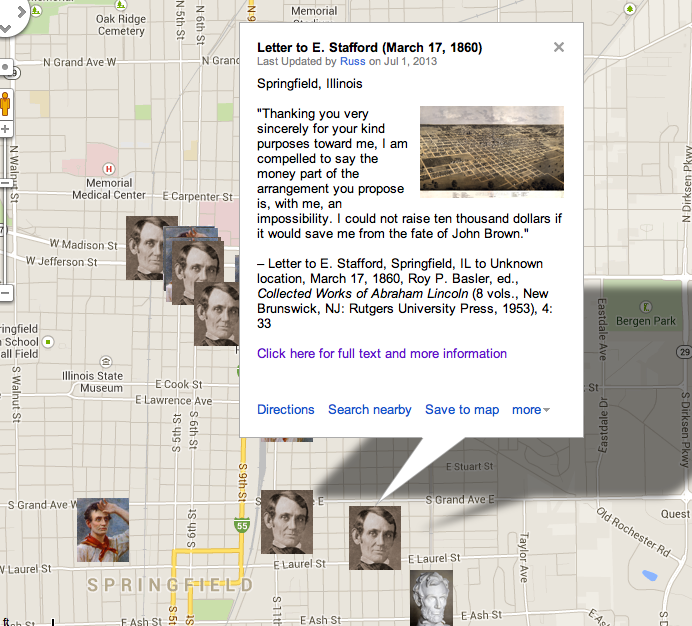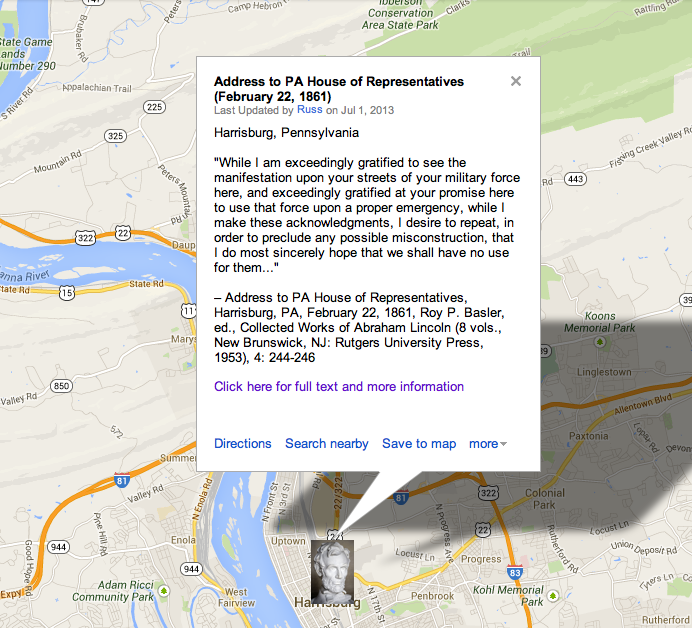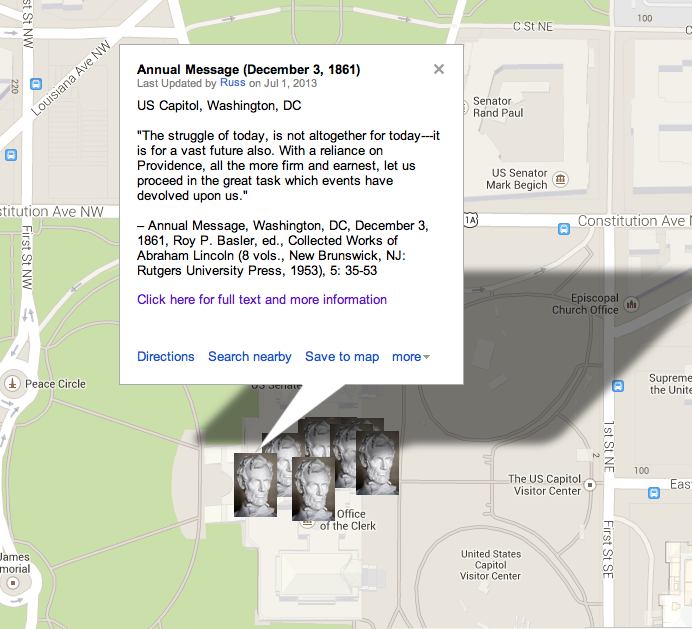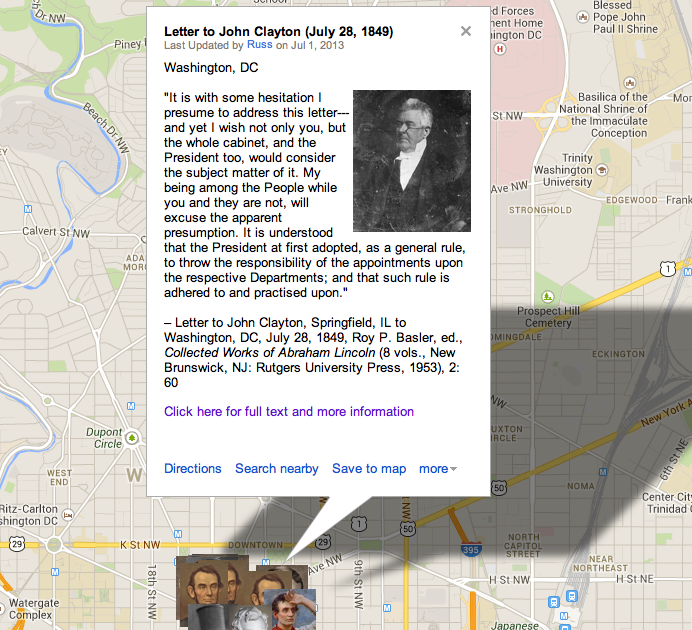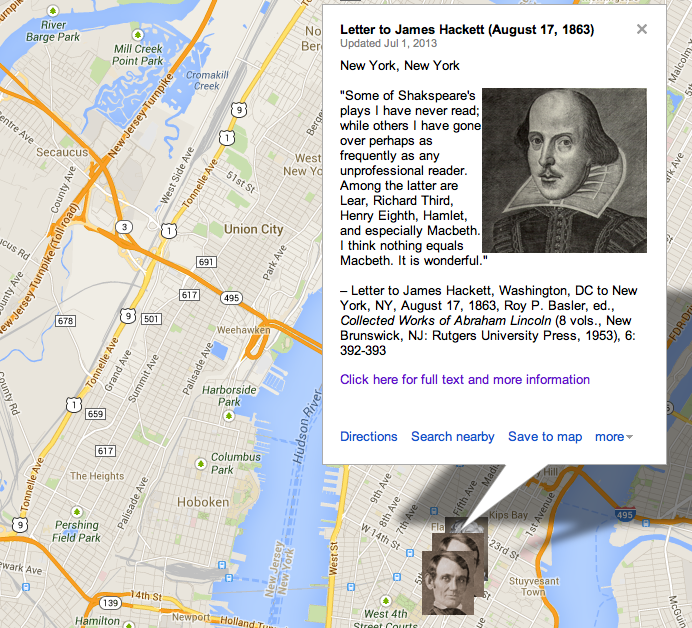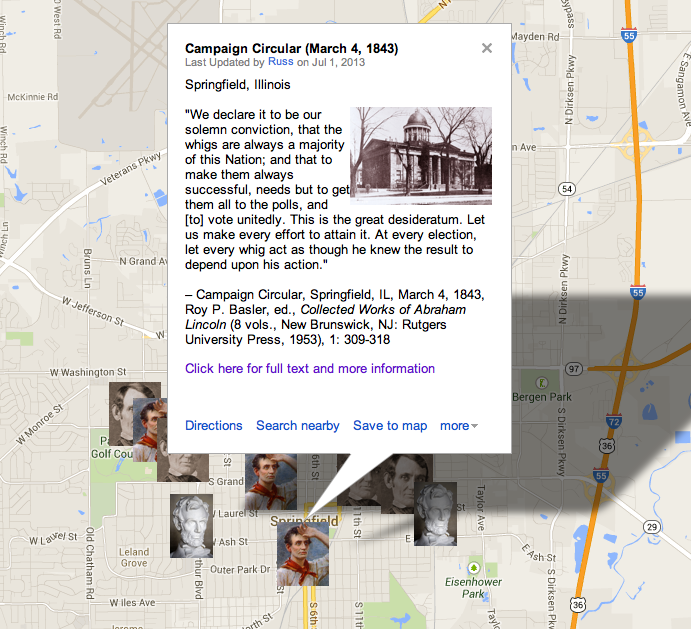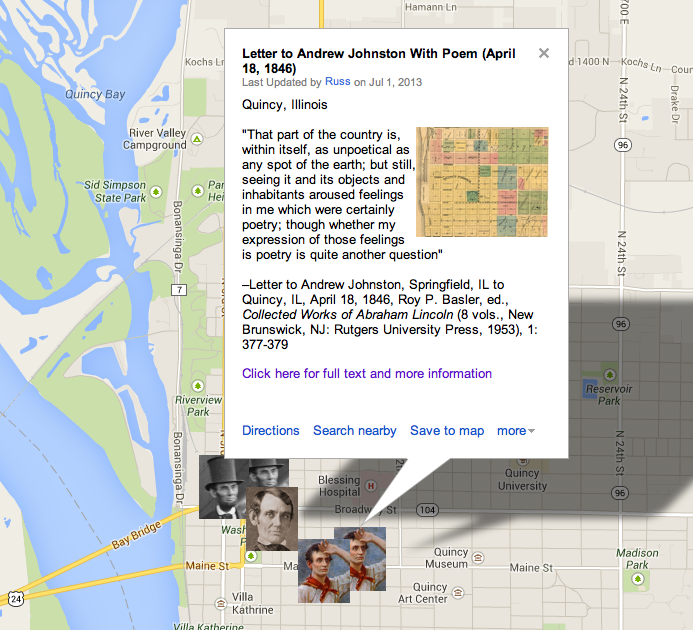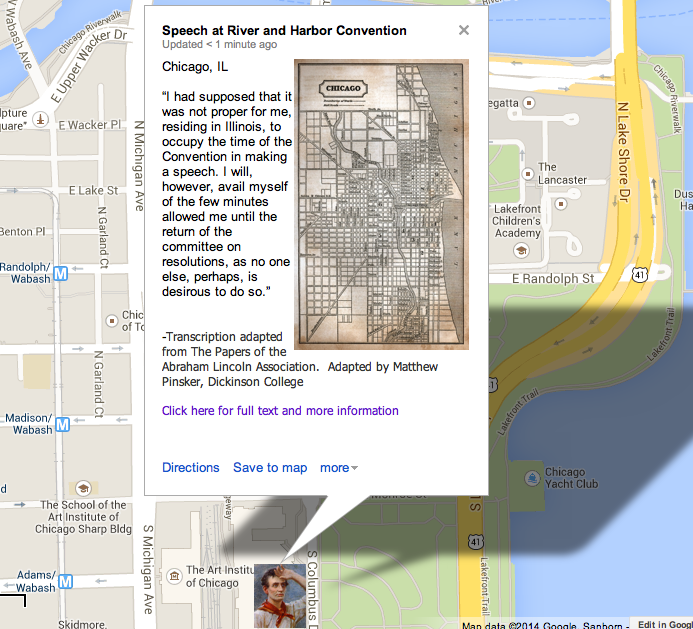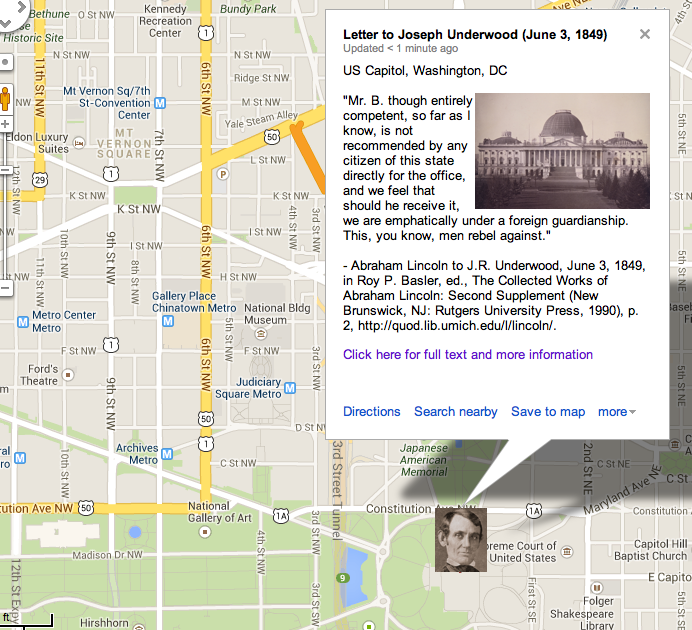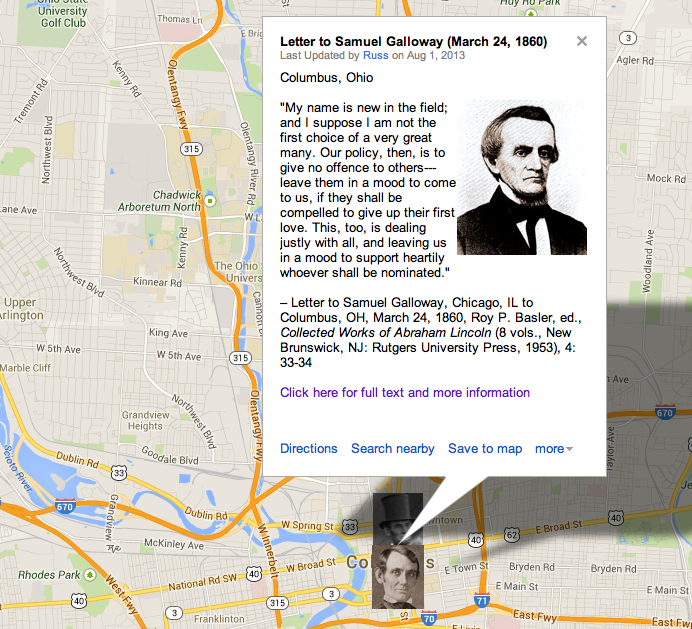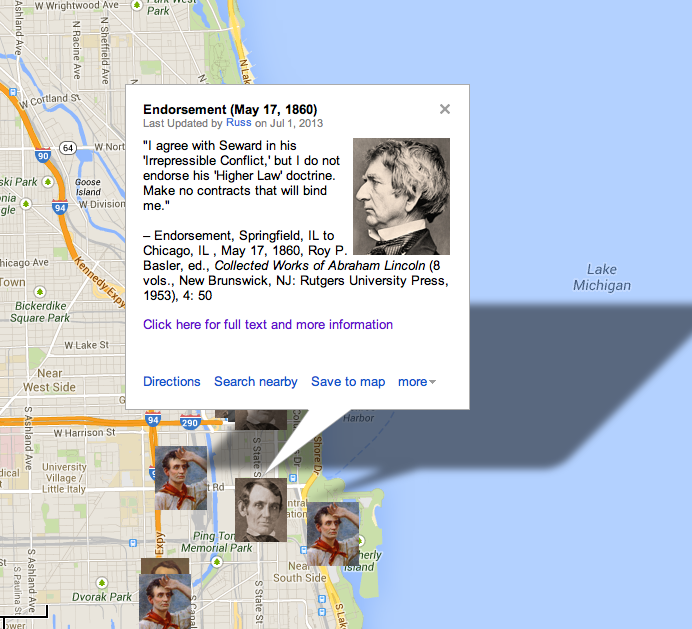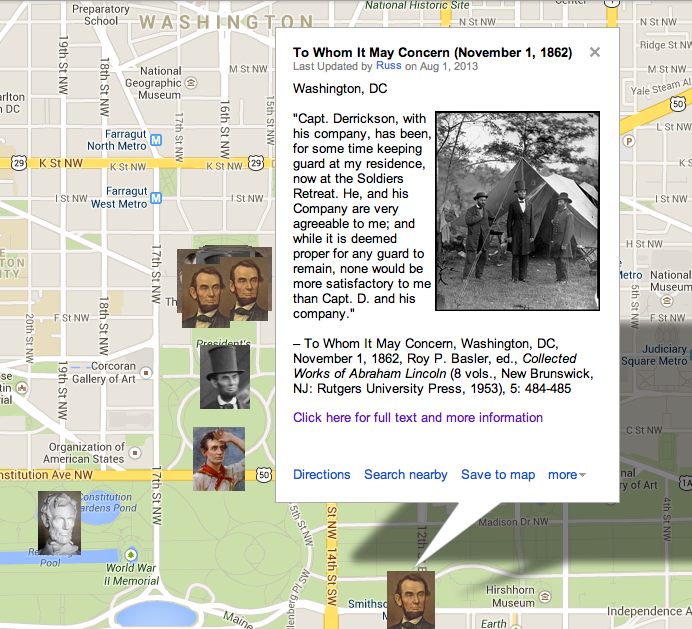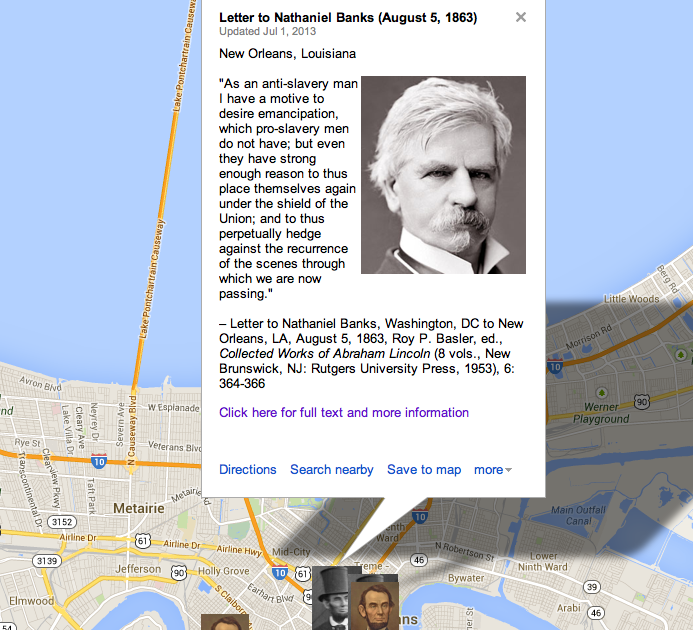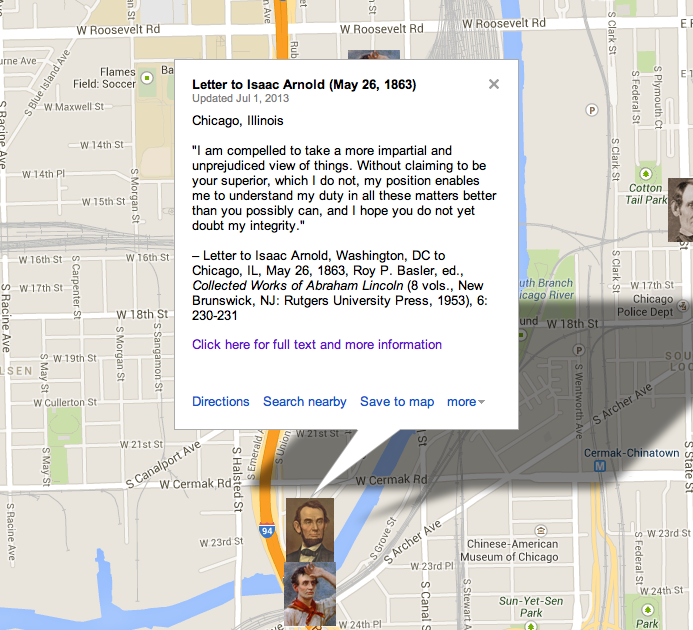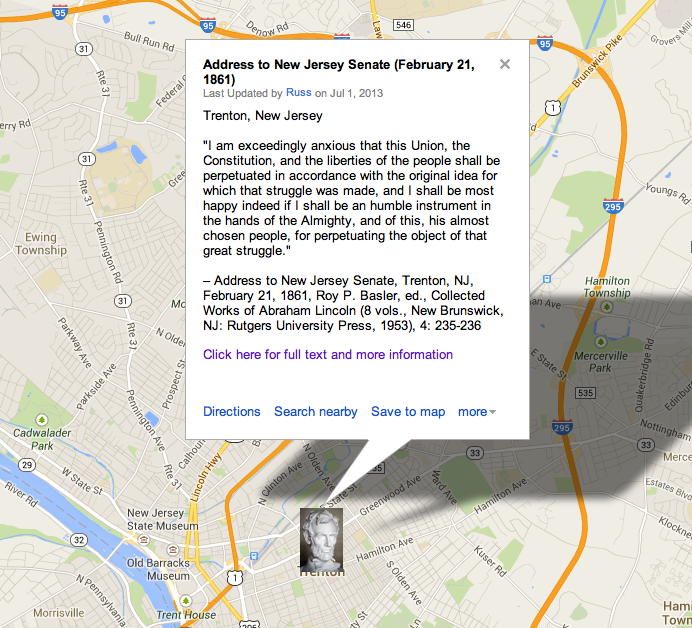“Anyone hunting for clues to Lincoln’s thinking would have found scattered through his first annual message to Congress in December still more hints about his personal inclinations on matters of race and slavery. He suggested opening diplomatic relations with Haiti and Liberia, and he actively pressed for the suppression of the illegal Atlantic slave trade. Though these were matters peripheral to emancipation, they tell us something about the President’s state of mind in late 1861.”
“Lincoln’s annual message dealt with a series of other problems in a rather perfunctory fashion, making it one of the president’s less memorable state papers. Before its publication, a justice of the New York state supreme court, fearing that it would be undignified and marred by ‘low commonplaces,’ suggested that Seward should help write it. In fact, a portion of the message was evidently composed by Seward and inserted at the last moment. Because it was ‘peculiarly a business document,” it was, according to Senator William P. Fessenden, ‘considered here a dry and tame affair.’ He thought it was marred by ‘several ridiculous things,’ but condescendingly remarked, ‘we must make the best of our bargain,’ …While moderate Republicans hailed the message’s substance as “wise, patriotic, and conservative,” and its style as “plain, concise and straightforward,” others complained about its brevity and its failure to mention the Trent crisis or to deal more fully with the slavery issue, both of which loomed large in the public mind… Just before the message was submitted to Congress, Lincoln told his cabinet why he was soft-pedaling the slavery issue: “Gentlemen, you are not a unit on this question, and as it is a very important one, in fact the most important which has come before us since the war commenced, I will float on with the tide till you are more nearly united than at present. Perhaps we shall yet drift into the right position.’”
This page is under construction and will be developed further by students in the new “Understanding Lincoln” online course sponsored by the House Divided Project at Dickinson College and the Gilder Lehrman Institute of American History. To find out more about the course and to see some of our videotaped class sessions, including virtual field trips to Ford’s Theatre and Gettysburg, please visit our Livestream page at http://new.livestream.com/gilderlehrman/lincoln
Nations, thus tempted to interfere, are not always able to resist the counsels of seeming expediency, and ungenerous ambition, although measures adopted under such influences seldom fail to be unfortunate and injurious to those adopting them.
The disloyal citizens of the United States who have offered the ruin of our country, in return for the aid and comfort which they have invoked abroad, have received less patronage and encouragement than they probably expected. If it were just to suppose, as the insurgents have seemed to assume, that foreign nations, in this case, discarding all moral, social, and treaty obligations, would act solely, and selfishly, for the most speedy restoration of commerce, including, especially, the acquisition of cotton, those nations appear, as yet, not to have seen their way to their object more directly, or clearly, through the destruction, than through the preservation, of the Union. If we could dare to believe that foreign nations are actuated by no higher principle than this, I am quite sure a sound argument could be made to show them that they can reach their aim more readily, and easily, by aiding to crush this rebellion, than by giving encouragement to it.
The principal lever relied on by the insurgents for exciting foreign nations to hostility against us, as already intimated, is the embarrassment of commerce. Those nations, however, not improbably, saw from the first, that it was the Union which made as well our foreign, as our domestic, commerce. They can scarcely have failed to perceive that the effort for disunion produces the existing difficulty; and that one strong nation promises more durable peace, and a more extensive, valuable and reliable commerce, than can the same nation broken into hostile fragments.
It is not my purpose to review our discussions with foreign states, because whatever might be their wishes, or dispositions, the integrity of our country, and the stability of our government, mainly depend, not upon them, but on the loyalty, virtue, patriotism, and intelligence of the American people. The correspondence itself, with the usual reservations, is herewith submitted.
I venture to hope it will appear that we have practiced prudence, and liberality towards foreign powers, averting causes of irritation; and, with firmness, maintaining our own rights and honor….
…Under and by virtue of the act of Congress entitled “An act to confiscate property used for insurrectionary purposes,” approved August, 6, 1861, the legal claims of certain persons to the labor and service of certain other persons have become forfeited; and numbers of the latter, thus liberated, are already dependent on the United States, and must be provided for in some way. Besides this, it is not impossible that some of the States will pass similar enactments for their own benefit respectively, and by operation of which persons of the same class will be thrown upon them for disposal. In such case I recommend that Congress provide for accepting such persons from such States, according to some mode of valuation, in lieu, pro tanto, of direct taxes, or upon some other plan to be agreed on with such States respectively; that such persons, on such acceptance by the general government, be at once deemed free; and that, in any event, steps be taken for colonizing both classes, (or the one first mentioned, if the other shall not be brought into existence,) at some place, or places, in a climate congenial to them. It might be well to consider, too,—whether the free colored people already in the United States could not, so far as individuals may desire, be included in such colonization.
To carry out the plan of colonization may involve the acquiring of territory, and also the appropriation of money beyond that to be expended in the territorial acquisition. Having practiced the acquisition of territory for nearly sixty years, the question of constitutional power to do so is no longer an open one with us. The power was questioned at first by Mr. Jefferson, who, however, in the purchase of Louisiana, yielded his scruples on the plea of great expediency. If it be said that the only legitimate object of acquiring territory is to furnish homes for white men, this measure effects that object; for the emigration of colored men leaves additional room for white men remaining or coming here. Mr. Jefferson, however, placed the importance of procuring Louisiana more on political and commercial grounds than on providing room for population….
… It continues to develop that the insurrection is largely, if not exclusively, a war upon the first principle of popular government—the rights of the people. Conclusive evidence of this is found in the most grave and maturely considered public documents, as well as in the general tone of the insurgents. In those documents we find the abridgement of the existing right of suffrage and the denial to the people of all right to participate in the selection of public officers, except the legislative boldly advocated, with labored arguments to prove that large control of the people in government, is the source of all political evil. Monarchy itself is sometimes hinted at as a possible refuge from the power of the people.
In my present position, I could scarcely be justified were I to omit raising a warning voice against this approach of returning despotism.
It is not needed, nor fitting here, that a general argument should be made in favor of popular institutions; but there is one point, with its connexions, not so hackneyed as most others, to which I ask a brief attention. It is the effort to place capital on an equal footing with, if not above labor, in the structure of government. It is assumed that labor is available only in connexion with capital; that nobody labors unless somebody else, owning capital, somehow by the use of it, induces him to labor. This assumed, it is next considered whether it is best that capital shall hire laborers, and thus induce them to work by their own consent, or buy them, and drive them to it without their consent. Having proceeded so far, it is naturally concluded that all laborers are either hired laborers, or what we call slaves. And further it is assumed that whoever is once a hired laborer, is fixed in that condition for life.
Now, there is no such relation between capital and labor as assumed; nor is there any such thing as a free man being fixed for life in the condition of a hired laborer. Both these assumptions are false, and all inferences from them are groundless.
Labor is prior to, and independent of, capital. Capital is only the fruit of labor, and could never have existed if labor had not first existed. Labor is the superior of capital, and deserves much the higher consideration. Capital has its rights, which are as worthy of protection as any other rights. Nor is it denied that there is, and probably always will be, a relation between labor and capital, producing mutual benefits. The error is in assuming that the whole labor of community exists within that relation. A few men own capital, and that few avoid labor themselves, and, with their capital, hire or buy another few to labor for them. A large majority belong to neither class—neither work for others, nor have others working for them. In most of the southern States, a majority of the whole people of all colors are neither slaves nor masters; while in the northern a large majority are neither hirers nor hired. Men with their families—wives, sons, and daughters—work for themselves, on their farms, in their houses, and in their shops, taking the whole product to themselves, and asking no favors of capital on the one hand, nor of hired laborers or slaves on the other. It is not forgotten that a considerable number of persons mingle their own labor with capital—that is, they labor with their own hands, and also buy or hire others to labor for them; but this is only a mixed, and not a distinct class. No principle stated is disturbed by the existence of this mixed class.
Again: as has already been said, there is not, of necessity, any such thing as the free hired laborer being fixed to that condition for life. Many independent men everywhere in these States, a few years back in their lives, were hired laborers. The prudent, penniless beginner in the world, labors for wages awhile, saves a surplus with which to buy tools or land for himself; then labors on his own account another while, and at length hires another new beginner to help him. This is the just, and generous, and prosperous system, which opens the way to all—gives hope to all, and consequent energy, and progress, and improvement of condition to all. No men living are more worthy to be trusted than those who toil up from poverty—none less inclined to take, or touch, aught which they have not honestly earned. Let them beware of surrendering a political power which they already possess, and which, if surrendered, will surely be used to close the door of advancement against such as they, and to fix new disabilities and burdens upon them, till all of liberty shall be lost.
From the first taking of our national census to the last are seventy years; and we find our population at the end of the period eight times as great as it was at the beginning. The increase of those other things which men deem desirable has been even greater. We thus have at one view, what the popular principle applied to government, through the machinery of the States and the Union, has produced in a given time; and also what, if firmly maintained, it promises for the future. There are already among us those, who, if the Union be preserved, will live to see it contain two hundred and fifty millions. The struggle of today, is not altogether for today—it is for a vast future also. With a reliance on Providence, all the more firm and earnest, let us proceed in the great task which events have devolved upon us.

